Unit 7 Shopping Welcome to the unit课件+嵌入音视频(共31张PPT)
文档属性
| 名称 | Unit 7 Shopping Welcome to the unit课件+嵌入音视频(共31张PPT) |
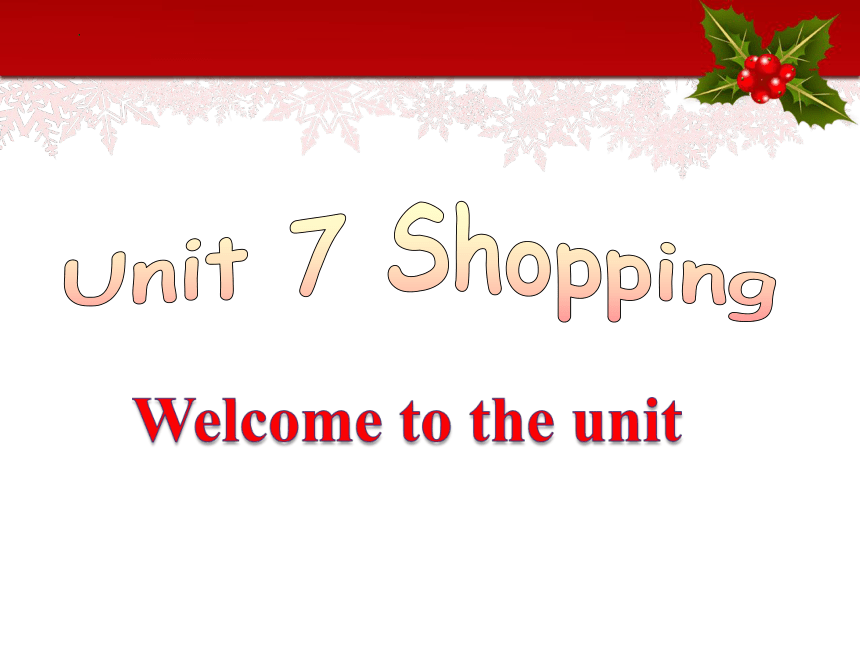
|
|
| 格式 | pptx | ||
| 文件大小 | 9.0MB | ||
| 资源类型 | 教案 | ||
| 版本资源 | 牛津译林版 | ||
| 科目 | 英语 | ||
| 更新时间 | 2023-08-12 15:43:31 | ||
图片预览

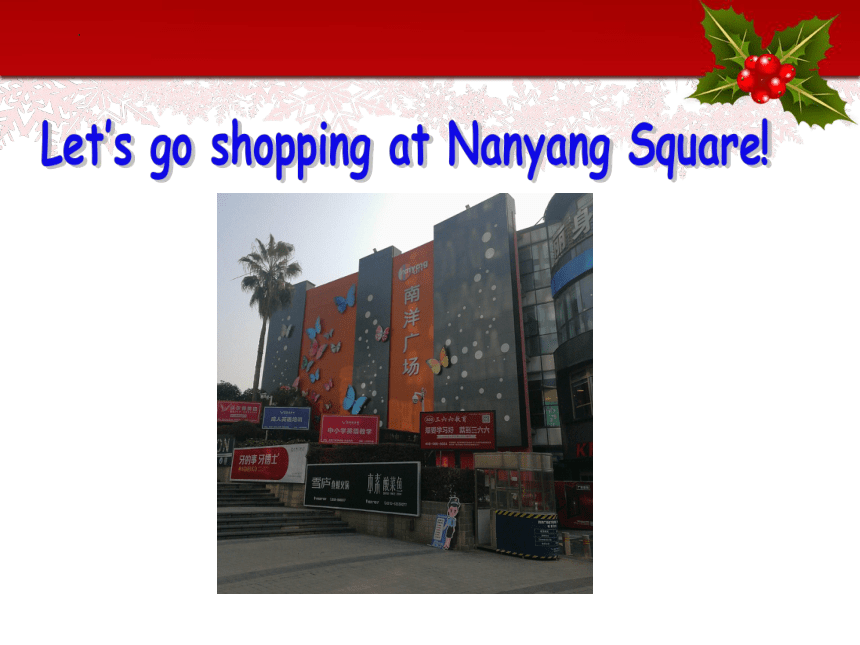
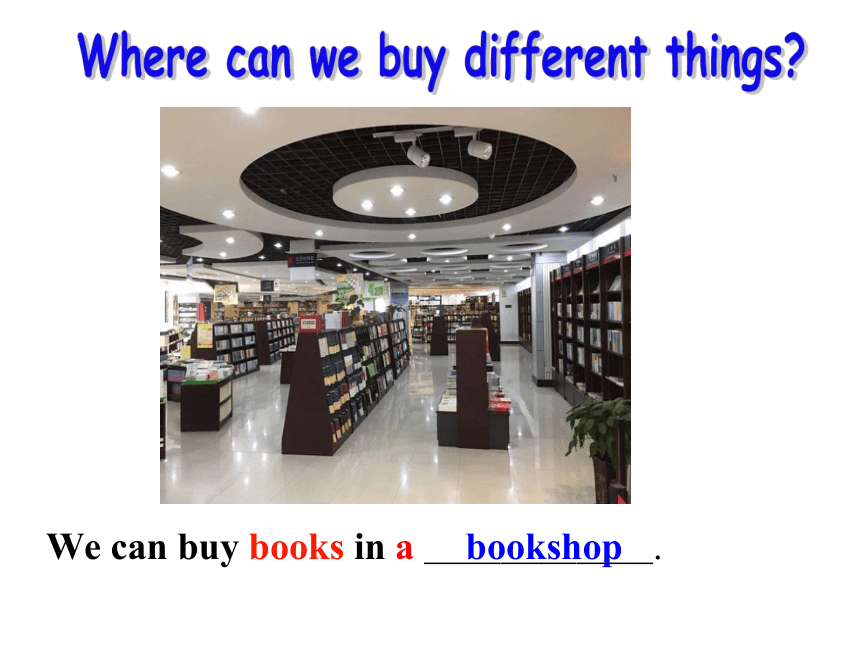
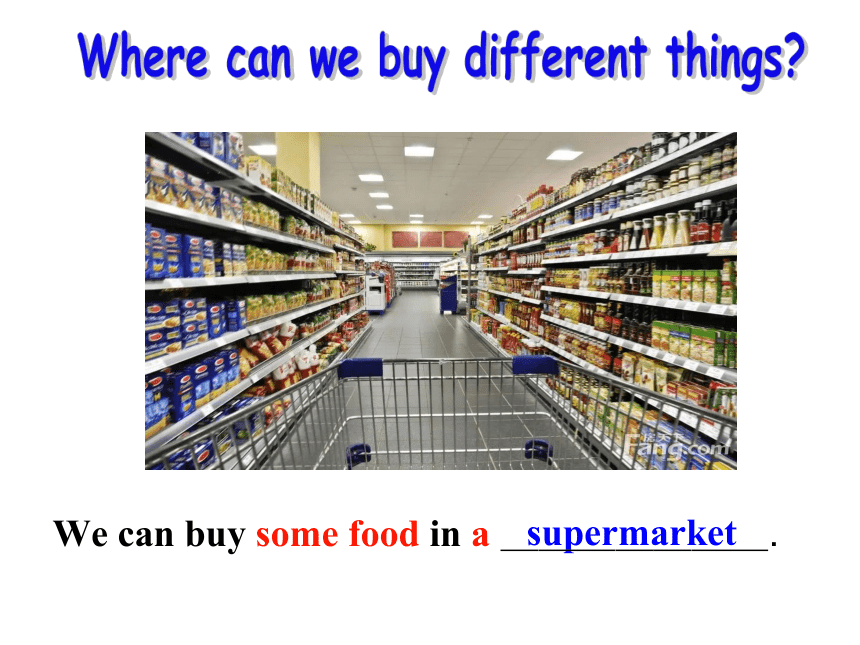
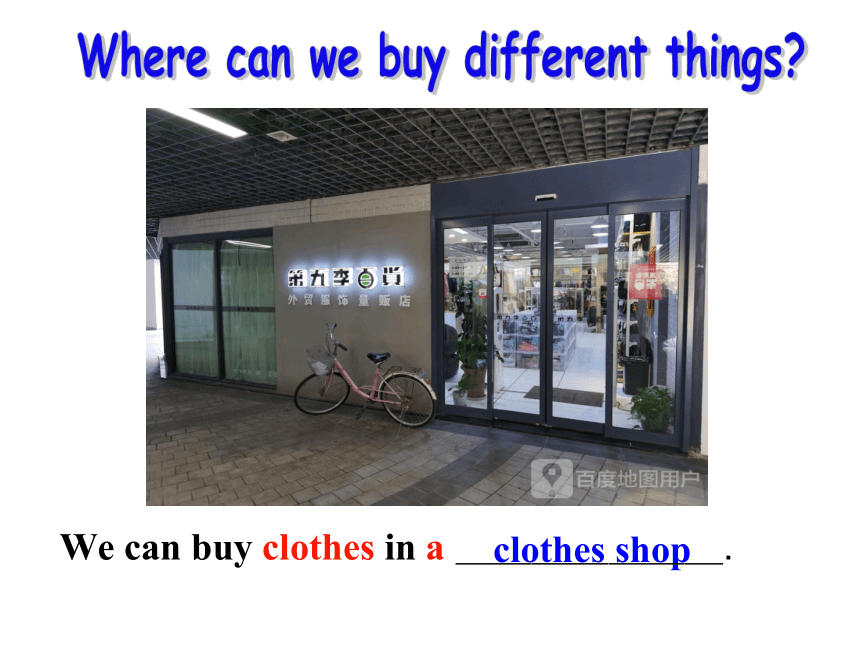
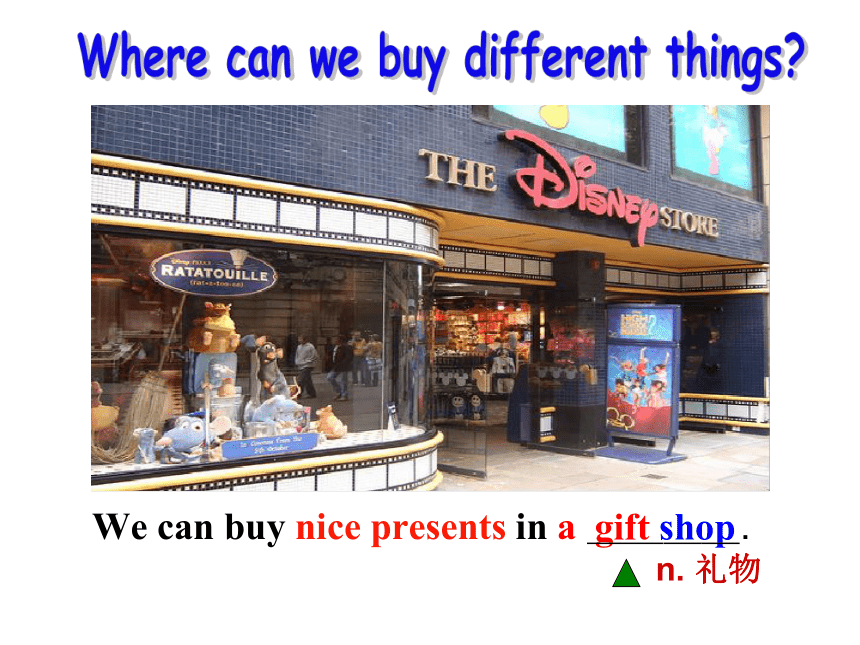
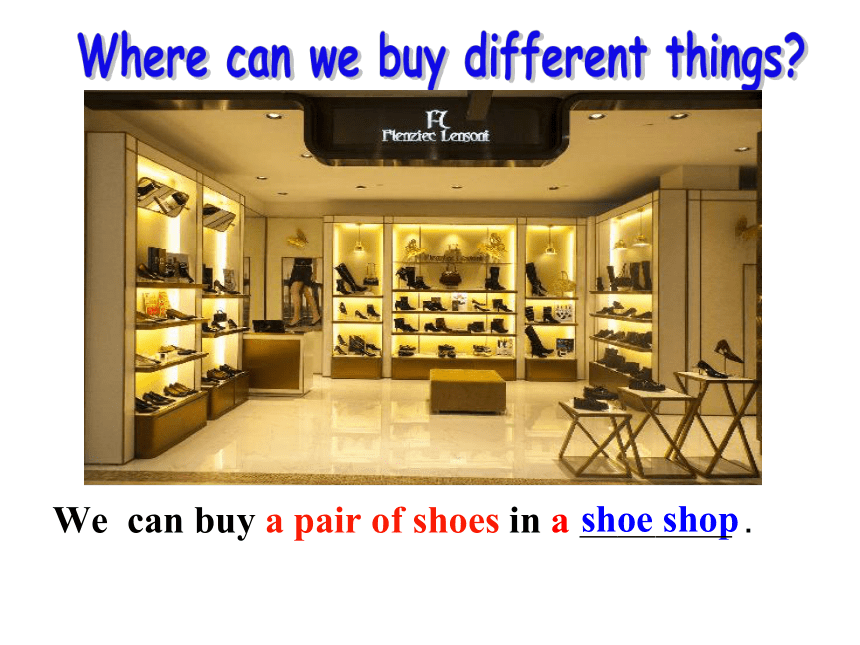
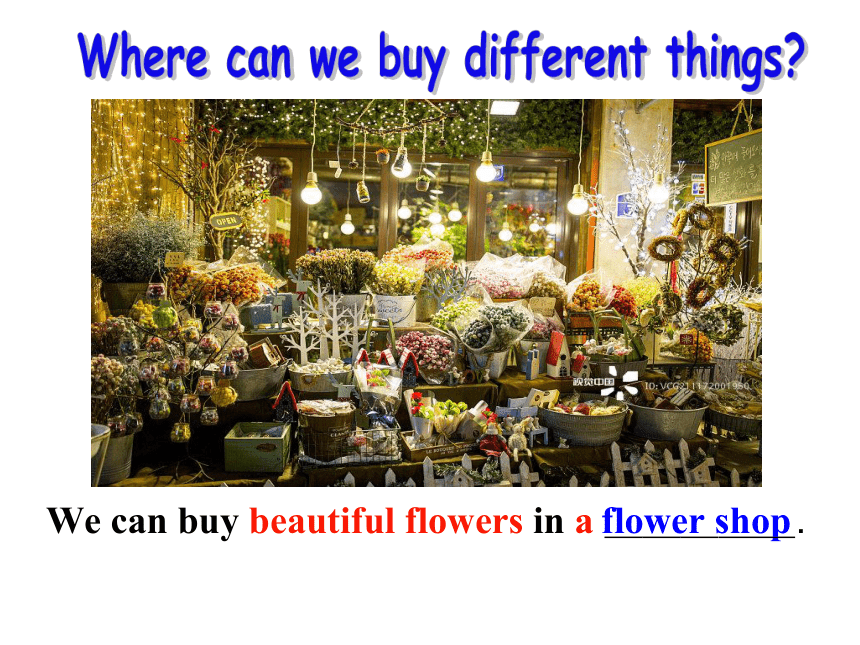
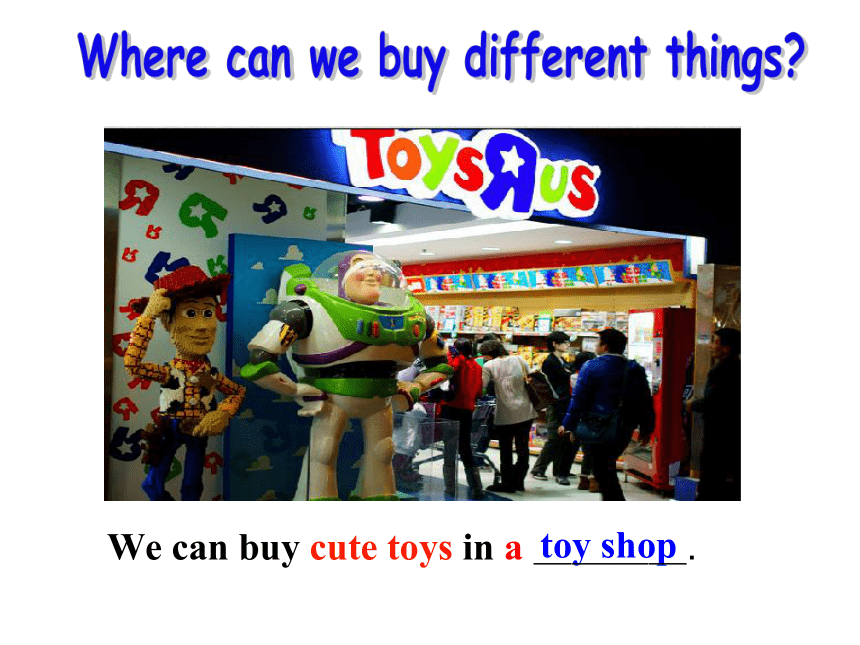
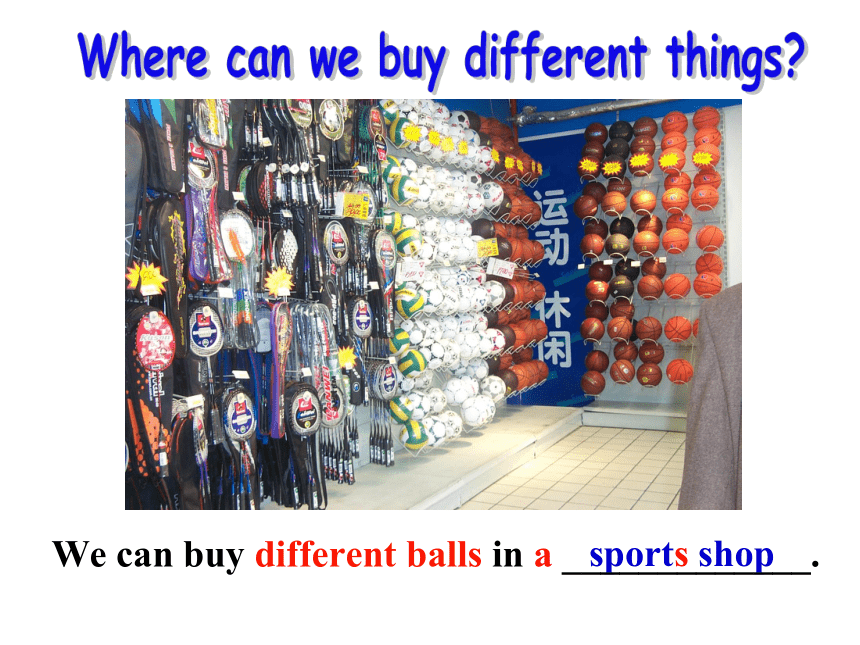
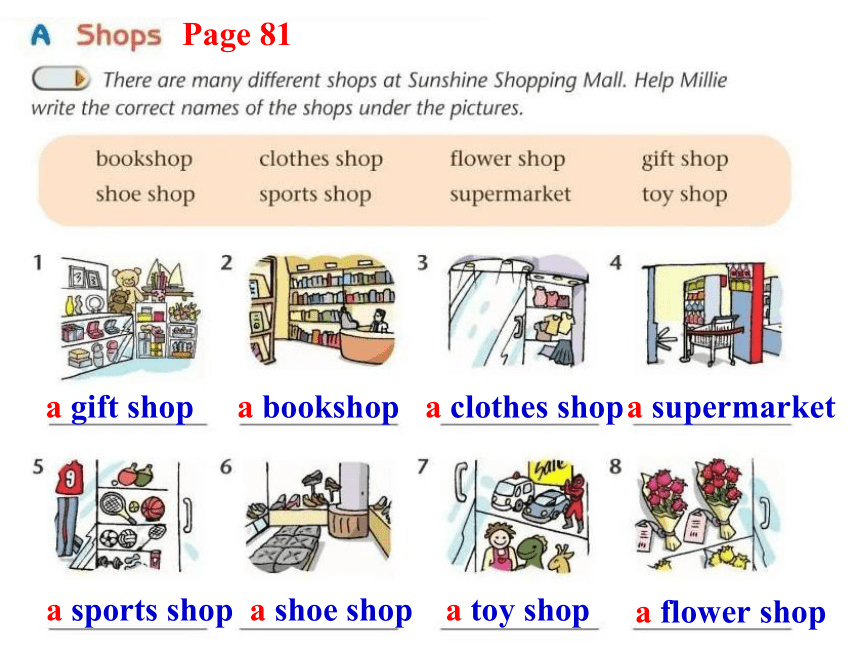
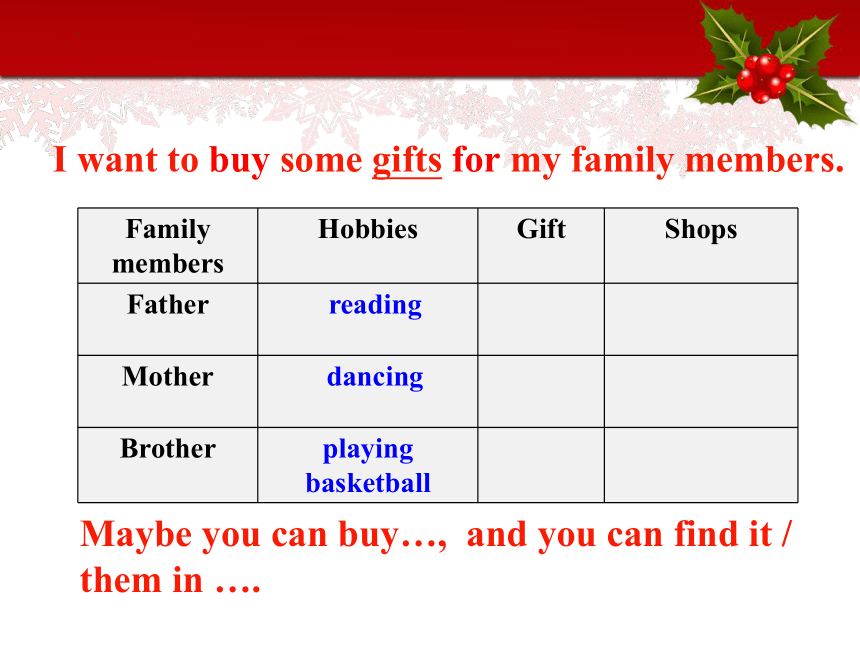
文档简介
(共31张PPT)
Unit 7 Shopping
Welcome to the unit
Let’s go shopping at Nanyang Square!
bookshop
We can buy books in a ______.
Where can we buy different things
supermarket
We can buy some food in a _______.
Where can we buy different things
clothes shop
We can buy clothes in a _______.
Where can we buy different things
gift shop
We can buy nice presents in a ____.
n. 礼物
Where can we buy different things
shoe shop
We can buy a pair of shoes in a ____ .
Where can we buy different things
flower shop
We can buy beautiful flowers in a _____.
Where can we buy different things
toy shop
We can buy cute toys in a ____.
Where can we buy different things
sports shop
We can buy different balls in a _____________.
Where can we buy different things
a supermarket
a flower shop
a clothes shop
a toy shop
a shoe shop
a sports shop
a gift shop
a bookshop
Page 81
I want to buy some gifts for my family members.
Can you give me some advice
Maybe you can buy…, and you can find it / them in ….
Family members Hobbies Gift Shops
Father reading
Mother dancing
Brother playing basketball
Please listen to the dialogue on page 81 and
answer the following questions:
1. What festival is coming
______________________________________
2. What does Millie tell Daniel to buy for Simon
_______________________________________
3. What does Daniel buy for Simon at last
_______________________________________
Christmas.
A music CD or some stamps.
Some stamps.
Listen and repeat
S1: Hi, …. Christmas is coming.
I want to buy a present for….
S2: What about …
S1: I’m not sure. Maybe he / she is not interested in….
S2: Then you can buy…. I know he/she likes….
S1: Good idea! Where can I buy it / them
S2: ….
S1: Thank you.
S2: You are welcome!
Pair work
Language points
I want to buy Simon a present.
1. buy sb. sth.
= buy sth. for sb. 给某人买某物
e.g.给Simon买个钱包怎么样?
How about buying Simon a wallet
What about buying a wallet for Simon
/ w l t /
2. be interested in sth./ doing sth.
对…感兴趣
The story is __________ and all of us are __________in it. (interested / interesting)
e.g.他们对英语很感兴趣。
e.g.Simon对跳舞感兴趣吗?
They are interested in English.
Is Simon interested in dancing
interesting
interested
Language points
Eddie likes shopping. ( )
(2) Hobo doesn’t have money to go shopping. ( )
(3) Hobo needs Eddie to
buy some presents. ( )
Comic strips
F
T
F
hates
carry all the bags.
Watch the video and imitate.
Read the comic and work in pairs.
Page 80
Act it out !
Tip1: Pay attention to the pronunciation and tones(语调) .
Tip2: Use the body language.
Language points
I’d like to go shopping.
= I ______ _______ go shopping
would like to do = want to do
I don’t have any money.
= I ______ ______ money.
not any = no
e.g. 冰箱里没有牛奶了。
There isn’t any milk in the fridge.
There is no milk in the fridge.
want to
have no
Language points
3. have (no) time for sth.
have (no) time to do sth.
没有时间做某事
e.g. 我没有时间阅读。
I have no time for reading.
e.g. 我没有时间玩电脑游戏。
I have no time to play computer games.
Language points
4. I need you to carry all the bags.
need sb. to do sth. 需要某人做某事
e.g. 我需要他帮助我。
I need him to help me.
need to do sth. 需要做某事
e.g. 我需要给她买个礼物。
I need to buy her a present.
=I need to buy a present for her.
What should we pay attention to (注意)
before we buy the presents?
Discuss in groups :
1. Their interests and hobbies
If they like reading, we can buy them _____ .
books
What should we pay attention to?
2. Heart is more important than money
礼轻情意重
Which is more important?
﹥
It’s not good as a birthday present in China!
13 and 4 are unlucky numbers!
3. Customs and culture
风俗和文化
We should pay attention to the followings
1.Their interests (兴趣) and hobbies.
2.Heart is more important than money.
3.Customs and culture. (风俗和文化)
4.Be careful with online shopping.
5.Choose the right(合适的)gifts to show your love.
6.Buy something useful and meaningful.
Exercises:
1.Most of the boys are in the computer games.
interesting; interested B. interesting; interesting
C. interested; interested D. interested; interesting
2.Let’s go to that .
There are many new styles of shoes there.
shoes shop B. shoes shops
C. shoe’s shop D. shoe shop
3. —Who would you like to buy the coat
—I’d like to give it to my brother a present.
A. for; for B. to; as C. for; as D. for; to
D
D
C
Thank you!
Unit 7 Shopping
Welcome to the unit
Let’s go shopping at Nanyang Square!
bookshop
We can buy books in a ______.
Where can we buy different things
supermarket
We can buy some food in a _______.
Where can we buy different things
clothes shop
We can buy clothes in a _______.
Where can we buy different things
gift shop
We can buy nice presents in a ____.
n. 礼物
Where can we buy different things
shoe shop
We can buy a pair of shoes in a ____ .
Where can we buy different things
flower shop
We can buy beautiful flowers in a _____.
Where can we buy different things
toy shop
We can buy cute toys in a ____.
Where can we buy different things
sports shop
We can buy different balls in a _____________.
Where can we buy different things
a supermarket
a flower shop
a clothes shop
a toy shop
a shoe shop
a sports shop
a gift shop
a bookshop
Page 81
I want to buy some gifts for my family members.
Can you give me some advice
Maybe you can buy…, and you can find it / them in ….
Family members Hobbies Gift Shops
Father reading
Mother dancing
Brother playing basketball
Please listen to the dialogue on page 81 and
answer the following questions:
1. What festival is coming
______________________________________
2. What does Millie tell Daniel to buy for Simon
_______________________________________
3. What does Daniel buy for Simon at last
_______________________________________
Christmas.
A music CD or some stamps.
Some stamps.
Listen and repeat
S1: Hi, …. Christmas is coming.
I want to buy a present for….
S2: What about …
S1: I’m not sure. Maybe he / she is not interested in….
S2: Then you can buy…. I know he/she likes….
S1: Good idea! Where can I buy it / them
S2: ….
S1: Thank you.
S2: You are welcome!
Pair work
Language points
I want to buy Simon a present.
1. buy sb. sth.
= buy sth. for sb. 给某人买某物
e.g.给Simon买个钱包怎么样?
How about buying Simon a wallet
What about buying a wallet for Simon
/ w l t /
2. be interested in sth./ doing sth.
对…感兴趣
The story is __________ and all of us are __________in it. (interested / interesting)
e.g.他们对英语很感兴趣。
e.g.Simon对跳舞感兴趣吗?
They are interested in English.
Is Simon interested in dancing
interesting
interested
Language points
Eddie likes shopping. ( )
(2) Hobo doesn’t have money to go shopping. ( )
(3) Hobo needs Eddie to
buy some presents. ( )
Comic strips
F
T
F
hates
carry all the bags.
Watch the video and imitate.
Read the comic and work in pairs.
Page 80
Act it out !
Tip1: Pay attention to the pronunciation and tones(语调) .
Tip2: Use the body language.
Language points
I’d like to go shopping.
= I ______ _______ go shopping
would like to do = want to do
I don’t have any money.
= I ______ ______ money.
not any = no
e.g. 冰箱里没有牛奶了。
There isn’t any milk in the fridge.
There is no milk in the fridge.
want to
have no
Language points
3. have (no) time for sth.
have (no) time to do sth.
没有时间做某事
e.g. 我没有时间阅读。
I have no time for reading.
e.g. 我没有时间玩电脑游戏。
I have no time to play computer games.
Language points
4. I need you to carry all the bags.
need sb. to do sth. 需要某人做某事
e.g. 我需要他帮助我。
I need him to help me.
need to do sth. 需要做某事
e.g. 我需要给她买个礼物。
I need to buy her a present.
=I need to buy a present for her.
What should we pay attention to (注意)
before we buy the presents?
Discuss in groups :
1. Their interests and hobbies
If they like reading, we can buy them _____ .
books
What should we pay attention to?
2. Heart is more important than money
礼轻情意重
Which is more important?
﹥
It’s not good as a birthday present in China!
13 and 4 are unlucky numbers!
3. Customs and culture
风俗和文化
We should pay attention to the followings
1.Their interests (兴趣) and hobbies.
2.Heart is more important than money.
3.Customs and culture. (风俗和文化)
4.Be careful with online shopping.
5.Choose the right(合适的)gifts to show your love.
6.Buy something useful and meaningful.
Exercises:
1.Most of the boys are in the computer games.
interesting; interested B. interesting; interesting
C. interested; interested D. interested; interesting
2.Let’s go to that .
There are many new styles of shoes there.
shoes shop B. shoes shops
C. shoe’s shop D. shoe shop
3. —Who would you like to buy the coat
—I’d like to give it to my brother a present.
A. for; for B. to; as C. for; as D. for; to
D
D
C
Thank you!
同课章节目录
- 预备课程
- Lesson 1 Nice to meet you !
- Lesson 2 A happy family
- Lesson 3 A nice school
- Lesson 4 You look cool !
- Lesson 5 Wonderful things
- Lesson 6 Have nice food
- Lesson 7 Enjoy our days
- Lesson 8 Let's have fun !
- Unit 1 This is me
- Unit 2 Let's play sports
- Unit 3 Welcome to our school
- Unit 4 My day
- Unit 5 Let’s celebrate
- Unit 6 Food and lifestyle
- Unit 7 Shopping
- Unit 8 Fashion
